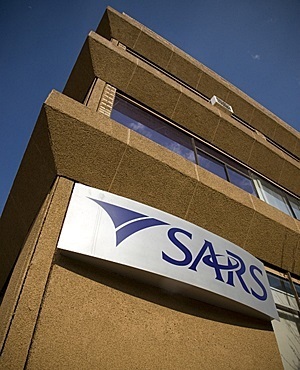
Rather than increasing taxes again, government is focusing on tax collection.
Despite increasing taxes by R36 billion last year, including an increase in VAT, the percentage of tax revenue relative to economic growth fell.
This was due to a shortfall of R42.8 billion in expected revenue collection.
This was a serious blow to the national budget and, combined with a R23 billion payment to Eskom this year, had pushed our national debt levelseven higher.
This year the government will spend R243 billion more than it receives in tax revenue, requiring it to borrow about R1.2 billion a weekday.
Although some of this lower tax collection could be blamed on a weaker economy, the Budget Review blamed problems with tax administration.
The review cites reports from the SA Revenue Service (Sars) Commission, which highlighted maladministration and abuse of tender procedures that hampered the ability of Sars to collect taxes.
The growth of illicit trade in cigarettes was estimated to have cost the fiscus about R7 billion in potential VAT collections.
A Treasury official told City Press this week that the focus this year was not to increase taxes, which had increased by R98.9 billion in four years, but to focus on improving tax collection.
He did say, however, that, if required, the government would make the tough decision to raise taxes in the future, but only once it was collecting the tax that was already due.
Sars would work hard to improve its integrity and to restore the trust in the institution.
The official said paying out VAT refunds, which had been delayed under the previous Sars commissioner, had been a priority.
“This added R8 billion to the shortfall in revenue collection, but we decided to take the blow now to restore trust in Sars, to restore integrity.”
The government would need to regain taxpayers’ trust by rooting out corruption and delivering on services.
The official acknowledged that tax morality and compliance in general had declined and that this was being investigated, as well as the effect of emigration.
Emigration tended to affect the higher income tax base which had globally transferable skills.
There are only about 500 000 taxpayers earning R750 000 or more. They accounted for half of all income tax paid. A reduction in this pool of taxpayers would result in a significant reduction in personal income tax revenue.
It appears the government has reached a threshold where additional tax would simply result in higher non-compliance.
The focus now would be on those taxpayers avoiding paying tax, shutting down illicit trade and closing loopholes exploited by large companies to artificially shift profits and avoid paying tax.
Tax through inflation
Although there was no direct increase in personal taxes, income taxpayers would effectively pay an additional R12.5 billion through inflation-adjusted salary increases.
Usually tax tables were adjusted upwards to accommodate inflation. This year, for the first time since in the early 1990s, the government did not adjust the tax tables for the so-called “fiscal drag”.
This means taxpayers who received nominal increases in salaries or wages to offset inflation, would be pushed into higher tax brackets, resulting in an increase in income taxes, but no increase in real buying power.
The government would also raise an additional R1 billion by not increasing medical tax credits by inflation. Unlike previous years, these funds would not be allocated to the National Health Insurance projects but directly to the national fiscus.
The government would also collect R1.2 billion through indirect tax.
This was through the usual increases in excise duty on alcohol and cigarettes, as well as the fuel levy.
This year the carbon tax on petrol and diesel – of 9c and 10c per litre, respectively – was introduced.
The latest tax increases meant that 41.8% of our fuel bill is made up of taxes.
The government would expand the zero-rated VAT items at a cost to potential revenue of R1.1 billion.
Tax Buoyancy
Tax buoyancy is the relationship between tax revenue growth and economic growth.
A buoyancy of 1 meant that the pace of revenue growth matched that of GDP growth.
Between 2010/11 and 2015/16 tax revenue grew faster than the economy.
In the past two years tax buoyancy had fallen below 1 and in 2018/19 tax year it fell to 0.98 despite projections that it would recover to 1.51.
This was due to the R42.8 billion revenue collection shortfall.
 |
| ||||||||||||
| |||||||||||||




 Publications
Publications
 Partners
Partners








